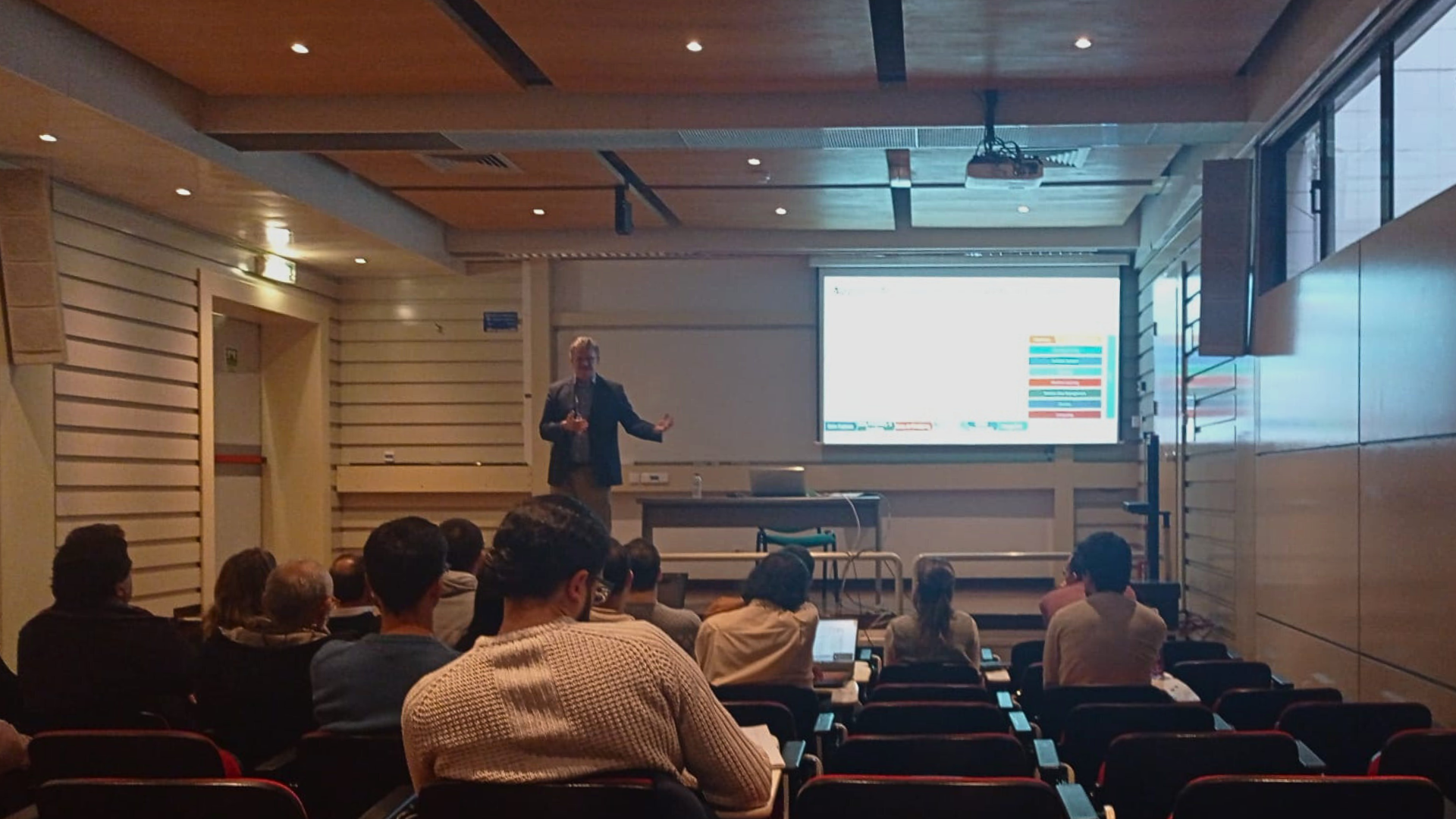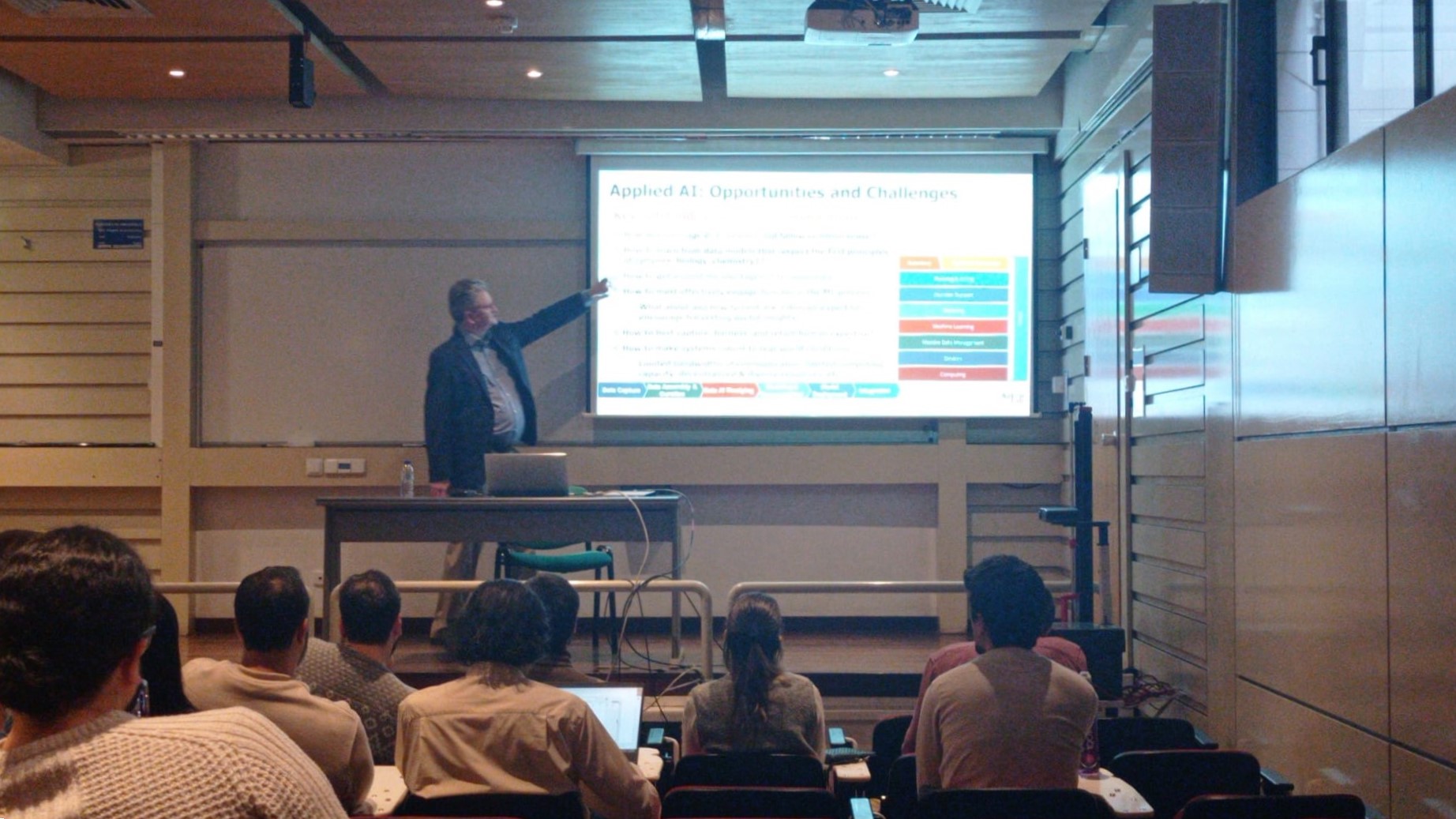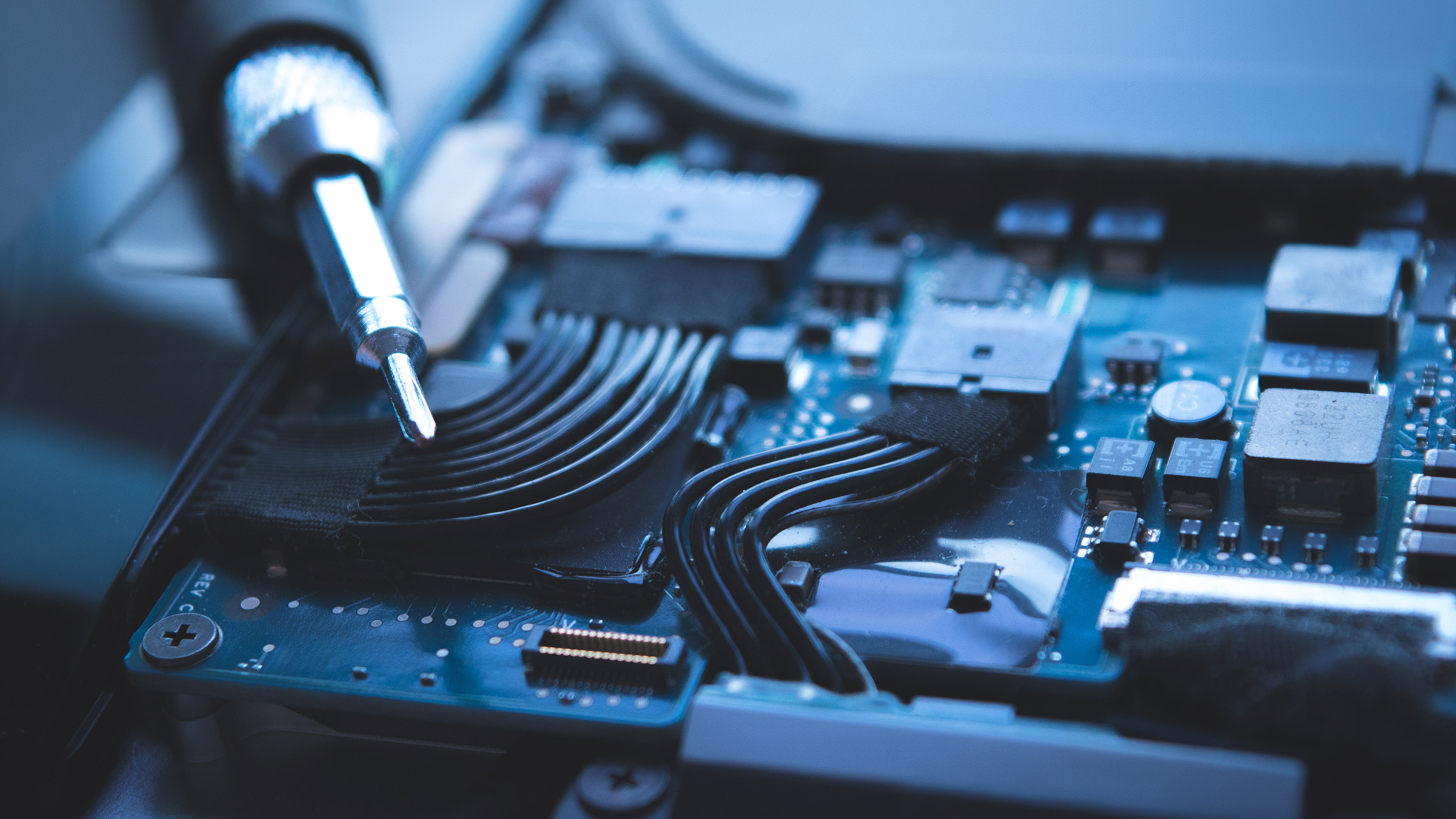Professor Artur Dubrawski presents the seminar "Applied AI: Opportunities and Challenges "

On the past 7th, the seminar "Applied AI: Opportunities and Challenges" took place in the north tower, presented by Professor Artur Dubrawski from the Robotics Institute of Carnegie Mellon University (CMU). The researcher shared with students and professors from Técnico some of the challenges his team faces in the fields of artificial intelligence and machine learning, based on his experience.
Currently, Artur Dubrawski coordinates the Auton Lab project, focused on using algorithms to improve the functioning of artificial intelligence. Emphasizing the importance of making AI accessible and useful to the general population, the professor highlighted the following research areas of Auton Lab:
- Medicine and public health services, detecting emerging outbreaks and ways of spreading infections through patients' genetic and electronic data, working on optimizing responses to critically ill patients (contributing with action options in the shortest possible time), supporting decision-making, and improving triage processes.
- Detection and decision support in case of radioactive threats, working on characterizing environments and processing alerts in the event of danger.
- Data analysis to combat human trafficking crimes.
How to succed in applied AI?
Artur Dubrawski, coordinator of the Auton Lab project
Valuing the work and capabilities of university students, Artur Dubrawski has worked in recent years with several students and alumni, not only from his research area but also from other fields. One such case involved a humanities student from CMU who asked how data science could be used to combat the crime of child sex trafficking. After reviewing statistics related to the disappearance of children and young people in the United States, and reflecting on the issue, the professor decided to contribute through research by analyzing data that could be related to the practice of this crime, using AI models and algorithms.

The research included the analysis and search for links between data to track organizations. While the results from the prototype used were positive, CMU's legal department pointed out that the research team was violating engagement laws, as the number of users on the platform did not correspond to fundamental research, highlighting that the team did not have authorization to conduct research at that scale.
Innovation is very hard to push.
Innovation is very hard to push.
In the second part of the seminar, focusing on the challenges faced by researchers, Artur Dubrawski highlighted several topics, including the existence of insufficient data and the growing need to create and find new sources and models that do not exclude information. He also mentioned research in the area of Transfer Learning, using models with existing data applied to new tasks. Lastly, he emphasized the need to automate the data labeling process while maintaining the accuracy of the results.
Concluding his presentation, the researcher spoke briefly about some projects developed by CMU students, such as CHRONOS, TimeGPT, and MOMENT, and invited Técnico students to participate in the summer internship program (RISS) at CMU's Robotics Institute.
The seminar ended with a Q&A session, where the audience had the opportunity to ask the researcher questions.
